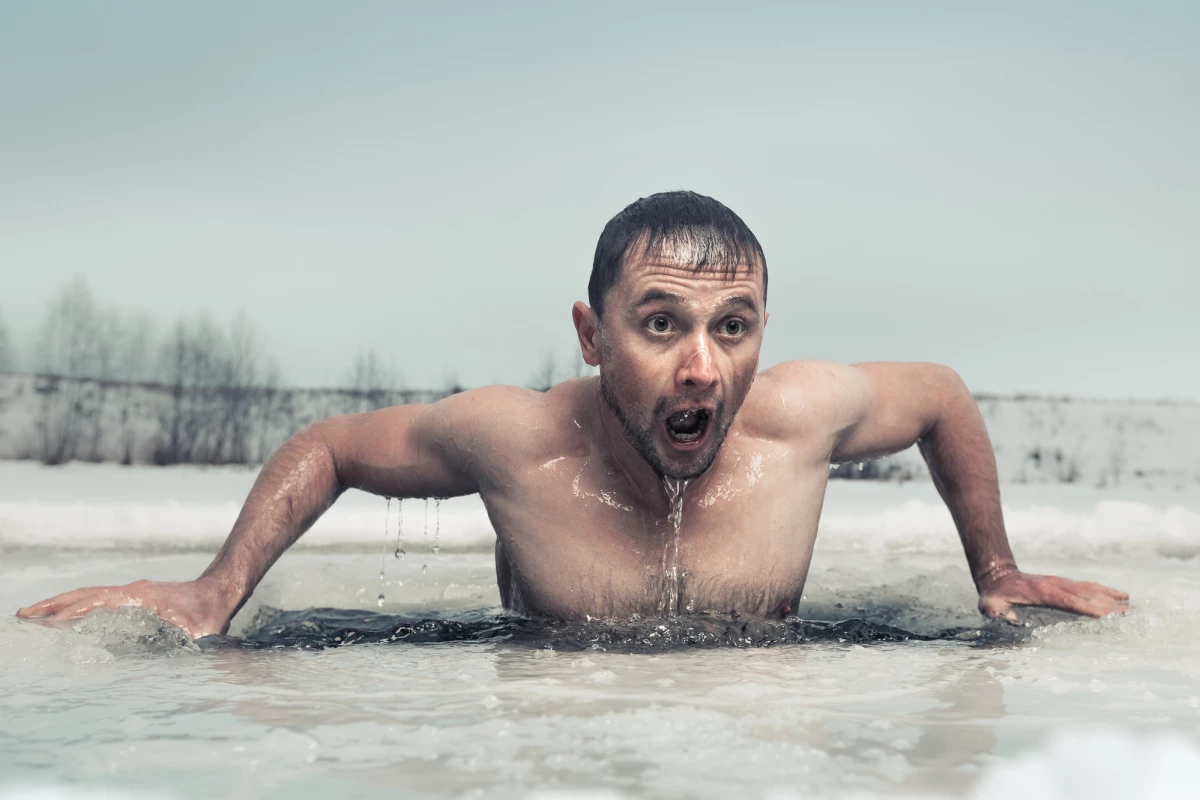New research has found one in five people have a specific genetic mutation that confers greater resilience to cold temperatures. The experimental study shows how people with a deficiency in generating a certain skeletal muscle protein shiver less and hold a higher core temperature in cold environments.
Recent genomic studies have suggested about 20 percent of people have a novel mutation in the ACTN3 gene, which expresses a skeletal muscle protein called alpha-actinin-3. This protein is found in greater volumes in fast-twitch muscle fibers.
The mutation in ACTN3 leads to a deficiency in alpha-actinin-3, increasing the prominence of slow-twitch muscle fibers. Evolutionary biologists have previously tracked the appearance of this mutation in humans as people migrated out of Africa into Europe and Asia.
Exactly what purpose this particular mutation served has been unknown but some researchers have hypothesized it as possibly helping early humans adapt to the colder climates of Europe. A new international study set out to empirically test that hypothesis.
The researchers recruited 43 healthy volunteers and subjected them to extensive cold water immersion tests. The results revealed those volunteers with the alpha-actinin-3 deficiency were significantly more resilient to cold temperatures.
“While only 30 percent of participants with the alpha-actinin-3 protein reached the full 120 minutes of cold exposure, 69 percent of those that were alpha-actinin-3 deficient completed the full cold-water exposure time,” the researchers report in a recent editorial. “We also assessed the amount of shivering during cold exposure periods, which told us that those without alpha-actinin-3 shiver less than those who have alpha-actinin-3.”
The researchers also measured muscle electrical activity and took tissue biopsies to better determine the causal mechanisms at play. Those with the gene mutation were indeed better able to maintain body temperature by increasing activation of slow-twitch muscle fibers, which subsequently produced heat by increasing baseline contractions.
It’s unclear whether this particular mutation increases the risk for disease but Håkan Westerblad, an author on the new study from the Karolinska Institutet, suggests future research will hope to address that particular question. However, Westerblad notes there is evidence suggesting the mutation is detrimental to certain types of athletic performance.
"People who lack α-actinin-3 rarely succeed in sports requiring strength and explosiveness, while a tendency towards greater capacity has been observed in these people in endurance sports," says Westerblad.
The new study was published in the American Journal of Human Genetics.
Sources: Karolinska Institutet, The Conversation




